THE allocation of reserved seats in the legislature has become a contentious issue and may require a critical interpretation of the law by the Supreme Court, as existing statutes provide unclear guidance on the situation in which the PTI-backed Sunni Ittehad Council (SIC) was denied these seats.
Acting on an SIC appeal, the Supreme Court already suspended a previous ruling by the Peshawar High Court (PHC), which affects the reserved seats designated for various political parties. As a result, the seats are likely to be de-notified and may affect the composition of both the National and provincial assemblies.
The ruling coalition has already lost 27 reserved seats in Punjab as the speaker of the provincial assembly has suspended 23 members of PML-N, two of PPP, and one member each of PML-Q and the Istehkam-i-Pakistan Party (IPP).
The session of the National Assembly has been summoned for May 13 (today), and the ruling coalition is likely to lose at least two dozen members for the time being, until the Supreme Court’s final verdict.
Legal experts say law is unclear in dealing with the situation in which PTI-backed SIC is seeking reserved seats, and will require SC interpretation
However, legal experts approached by Dawn agree that law is not very clear in dealing with such a situation in which the SIC was seeking reserved seats.
The controversy emerged as the SIC, which did not officially contest the elections, claimed reserved seats based on the support of PTI-backed independents. However, the Election Commission of Pakistan (ECP) withheld the notifications of these 23 reserved seats — 20 for women and three for minorities.
Later, on March 5, the commission distributed these seats to ruling parties, allocating 15 seats reserved for women to PML-N, four to PPP and one to the JUI-F. It allocated one seat each reserved for the minorities to PML-N, PPP and MQM-P.
Consequently, PML-N became the largest party in the National Assembly with 123 seats, whereas the tallies of PPP and the JUI-F rose to 73 and 11, respectively. The ECP also issued notifications on the reserved seats for women and minorities in Punjab and KP assemblies on the same day.
PML-N had initially won a total of 75 general seats and was joined by nine independents. With the allocation of 19 reserved seats for women and four reserved seats for minorities, the number reached 107. However, after getting the additional seats following the ECP’s March 5 notifications, PML-N’s tally jumped to 123.
What the law says
The reserved seats are allocated in the National Assembly under Article 51 of the Constitution and in provinces under Article 106. The relevant law is Section 104 of the Elections Act.
Clause 6(d) of Article 51 says: “Members to the seats reserved for women which are allocated to a Province under Clause 3 shall be elected in accordance with law through proportional representation system of political parties’ lists of candidates on the basis of total number of general seats secured by each political party from the province concerned in the National Assembly.”
Clause 3(c) of Article 106 says that the members who fill seats reserved for women and non-Muslims allocated to a province under Clause 1 “shall be elected in accordance with law through a proportional representation system of political parties’ lists of candidates on the basis of the total number of general seats secured by each political party in the provincial assembly”.
Both the constitutional provisions explain that members to the reserved seats will be elected “in accordance with the law”.
The relevant law, i.e. Section 104 of the Elections Act, says: “For the purpose of election to seats reserved for women and non-Muslims in an assembly, the political parties contesting election for such seats shall, within the period fixed by the Commission for submission of nomination papers, file separate lists of their candidates in order of priority for seats reserved for women and non-Muslims with the Commission or, as it may direct, with the Provincial Election Commissioner or other authorised officer of the Commission, who shall forthwith cause such lists to be published for information of the public.”
Experts’ opinion
Former Senate chairman Farooq H. Naek, who represented PPP before the Peshawar High Court in this particular case, argued that the Elections Act explicitly said the political parties that contested the elections are entitled to submit the list of candidates for the reserved seats.
He said the SIC did not contest in the elections, and even its chairman, Sahibzada Hamid Raza, was an independent candidate.
He pointed out that both the constitutional provisions cited a “law” for reserved seats, which is the Elections Act, and that the SIC did not submit the list within the prescribed timeframe.
He claimed that the reserved seats could never go to the SIC or the Supreme Court may declare the law ultra vires (beyond the scope or in excess of legal power or authority) to the Constitution.
Constitutional expert Mohammad Akram Sheikh said that though the Elections Act provides that only contesting parties could submit the lists for the reserved seats, the Constitution did not say so, and constitutional provisions have an overriding effect on the statute.
Mr Sheikh said the PTI-backed independent candidates contested the elections using different symbols as the Supreme Court deprived the party of its election symbol, ‘the bat’. He said this decision by a three-judge Supreme Court bench was per incuriam (through lack of due regard to law) as a 12-member bench of the Supreme Court in 1989 dealt with the PPP election symbol in the ‘Benazir Bhutto vs Federation of Pakistan’ case.
According to him, people did not vote for independent candidates; they voted for the PTI. And since the voters expect all the ancillary benefits for the political party they vote for, the PTI could not be deprived of the reserved seats because these were included in the overall election package.
He pointed out that the SIC could be allocated reserved seats as Sub-Section 4 of Section 104 of the Elections Act says: “If, at any time, the party list is exhausted, the political party may submit a name for any vacancy.” Advocate Supreme Court Kashif Ali Malik, however, quoted the apex court’s observation that “this is the case of first impression; therefore, the Supreme Court would examine all the aspects related to the allocation of reserved seats.”
He said the Constitution did not mention parties “contested” in the election and only referred to the “law” for the election of reserved seats.
The law said something that was not in the Constitution; therefore.
Published in Dawn, May 13th, 2024
















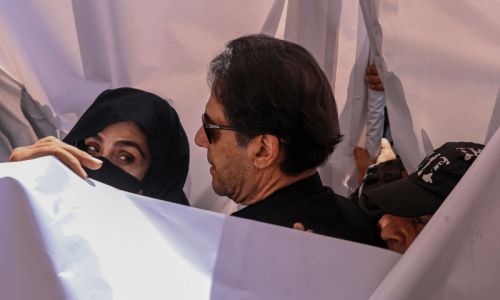

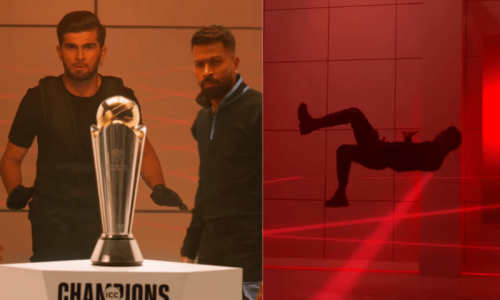













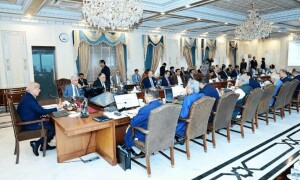

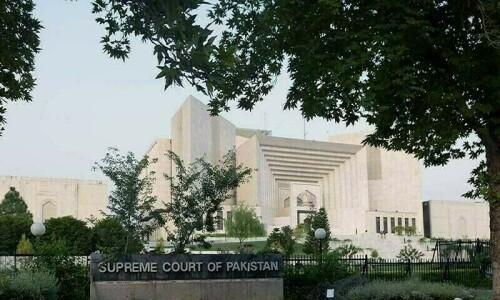


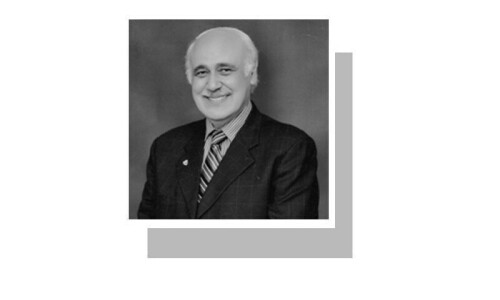


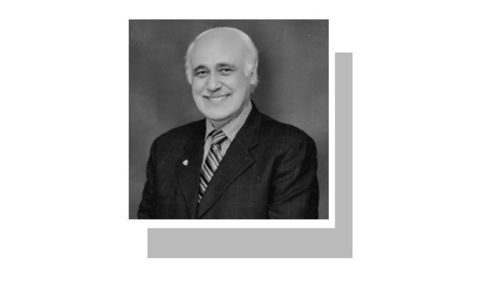
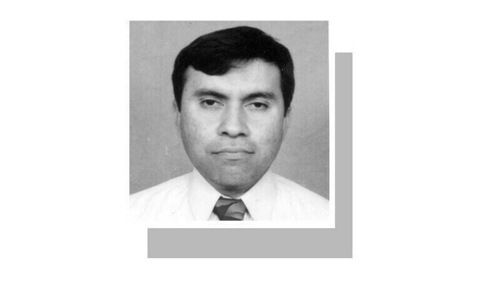

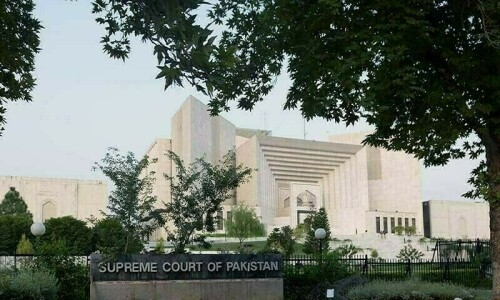




Dear visitor, the comments section is undergoing an overhaul and will return soon.